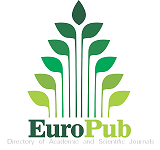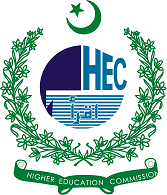A Qualitative analysis of Health among Microcephalies (Shah Daula Community): Narratives from Gujrat, Punjab Pakistan
DOI:
https://doi.org/10.58932/MULA0030Keywords:
Shah Daula Community, Microcephaly, Belief, Health IssuesAbstract
The Shah Daula community in Gujrat, Pakistan, has been linked to religious and humanitarian endeavors, especially providing care for youngsters suffering from mental illnesses and microcephaly. The study aimed to examine the social, physical and sexual health issues of Micro-cephalic people (Shah Daula community). The data was gathered by using the qualitative approach. The interviews were conducted with the attendant of the population of the Shah Daula community as they are the caretakers of the Micro-cephalic patient’s health issues from Gujarat and Rawalpindi. The sample was selected by convenience sampling technique and fifteen repondents were selected for interviews. Moreover, the study used thematic analysis for the interpretation of the data. The results showed that the Shah Daula community’s health issues are based on their belief system. Because of these beliefs system, their social, physical and sexual health issues were neglected. No health services were provided to this community regarding their social, physical and sexual health needs. They were stigmatized that they have no disease but they are the gift of GOD (Murad and manat). The findings suggest that there is a need to aware the people to regarding the issue of Micro-cephalic that one should not stick to this health issue with some traditional beliefs and should be provided proper health services according to their needs.
References
Amital, E. N. (2017). Developmental Measures: The Zika Virus, Microcephaly, and Histories of Global Northern State Anxieties.
Anand, S. (2020). Historicising disability in India: Questions of subject and method. In Disability Studies in India (pp. 35-60). Routledge India.
Anjum, T. (2021). Calm amid Choas: The Role of Shah Ghulam ‘Ali in the Revival of Sufi Traditions in the 19 th-century India and beyond. Pakistan Vision, 11(2), 106-148.
Asaduzzaman, M., & Ud-Daula, M. A. (2021). Adolescence Empowerment, Sustainability, and Gender Equality. In Gender Equality (pp. 20-31). Cham: Springer International Publishing.
Broussard, G., Rubenstein, L. S., Robinson, C., Maziak, W., Gilbert, S. Z., & DeCamp, M. (2019). Challenges to ethical obligations and humanitarian principles in conflict settings: a systematic review. Journal of International Humanitarian Action, 4(1), 1-13.
Charan, I. A., Xin, S., Zezhuang, W., & Yao, D. (2020). Rethinking efficacy: People’s perception of ritual healing and trance religious practices at shrines in Pakistan. Asian Journal of Psychiatry, 52, 102020.
Ding, W., Zhang, C., Wang, B., Zhou, X., Sun, L., Zhong, S., ... & Wu, Q. (2021). Loss of the centrosomal protein Cenpj leads to dysfunction of the hypothalamus and obesity in mice. Science China Life Sciences, 64, 419-433.
Duker, A. L., Kinderman, D., Jordan, C., Niiler, T., Baker-Smith, C. M., Thompson, L., ... & Bober, M. B. (2021). Microcephalic osteodysplastic primordial dwarfism type II is associated with global vascular disease. Orphanet Journal of Rare Diseases, 16(1), 231.
Fernandes, Y. (2015). Fishing for a Zebrafish model of Fetal Alcohol Spectrum Disorder: The Behavioural Characterization and a Biological Exploration of the Effects of Embryonic Alcohol Exposure on Zebrafish. University of Toronto (Canada).
Ghilazi, S. A. (2016). A Study of Mystery and Misconceptions about Children having Microcephaly. Siena journals, 1, 76.
Haroon, S. (2021). The Mosques of Colonial South Asia. The Mosques of Colonial South Asia, 1-248.
Imam, M.A. et al. (2023) ‘Contextualizing research approaches: The role of Western and Islamic philosophies in shaping methodology and knowledge creation’, Al-Irfan, 8(16), pp. 69–90.
Jacobsen, M. H., Bo, I. G., & Graven, V. (2023). Pain–from physical pain to social suffering. In Exploring Emotions in Social Life (pp. 189-210). Routledge.
Mumtaz, M. K. (2023). Viewing the Face of a God’s Friend: Conceptual and Literary Premises. In Faces of God: Images of Devotion in Indo-Muslim Painting, 1500–1800 (pp. 41-71). Brill.
Popova, S., Charness, M. E., Burd, L., Crawford, A., Hoyme, H. E., Mukherjee, R. A., ... & Elliott, E. J. (2023). Fetal alcohol spectrum disorders. Nature Reviews Disease Primers, 9(1), 11.
Qadar, A., & Waheed, A. (2024). From Sainthood to Saintly Kinship: How Claiming Saintly Kinship Is Structuring the Social and Patronage Relationships in Rural Punjab, Pakistan. Journal of Asian and African Studies, 59(1), 69-80.
Rahat, R., Nadeem, L., & Afzal, T. (2022). Artistic portrayal of the rats of Shah-Daula in Pakistan: a visual analysis through portrait painting. Journal of Humanities, Social and Management Sciences (JHSMS), 3(2), 129-137.
Rahman, M. M., Tabash, M. I., Salamzadeh, A., Abduli, S., & Rahaman, M. S. (2022). Sampling techniques (probability) for quantitative social science researchers: a conceptual guidelines with examples. Seeu Review, 17(1), 42-51.
Rasool, S., Baig, J. M., Moawia, A., Ahmad, I., Iqbal, M., Waseem, S. S., ... & Hussain, M. S. (2020). An update of pathogenic variants in ASPM, WDR62, CDK5RAP2, STIL, CENPJ, and CEP135 underlying autosomal recessive primary microcephaly in 32 consanguineous families from Pakistan. Molecular Genetics & Genomic Medicine, 8(9), e1408.
Reshamwala, Z. R. (2021). The Orient in the Empire's Poetry: Scholarship, Translation, and Imaginative Geography (1770-1857) (Doctoral dissertation, University of Denver).
Rivera, M. (2021). Transitions in Black and Latinx community-based doula work in the US during COVID-19. Frontiers in sociology, 6, 611350.
Syed, A. N. (2024). Postcolonial Theatre and Ibsen Productions in Pakistan: A Historical Overview. In Ibsen in the Decolonised South Asian Theatre (pp. 21-40). Routledge.
Usman, M. (2021). History of Shia, Sunni and Yazidi Conflict: A Political, Social or Religious Conflict and its Impact on the Peace Process in the Middle East (Doctoral dissertation), University of Innsbruck.




